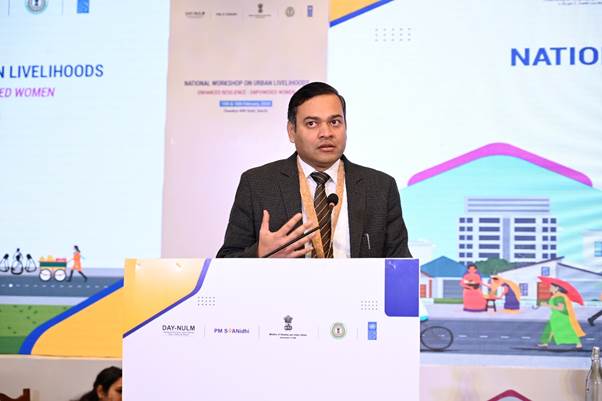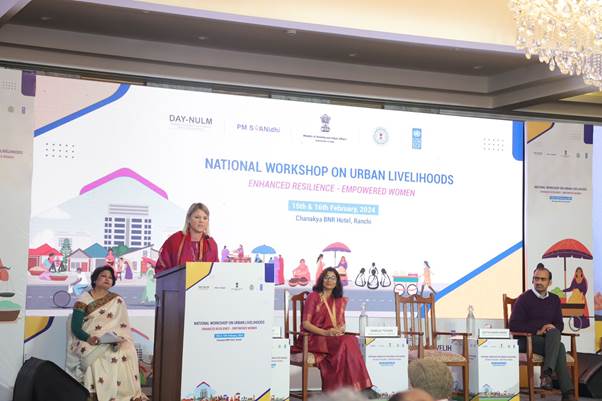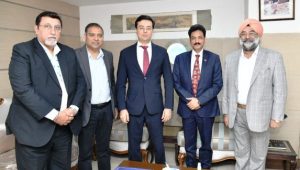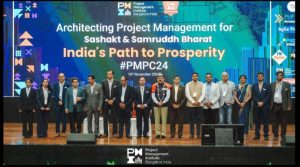- Workshop witnesses deliberations on emerging trends and opportunities in urban livelihoods
- Features discussions focusing on enabling strategies to foster women-led urban livelihoods
New Delhi :- A two-day national workshop convened in Ranchi, Jharkhand, from February 15-16, 2024, under the Deendayal Antyodaya Yojana-National Urban Livelihoods Mission (DAY-NULM), the Ministry of Housing and Urban Affairs (MoHUA), in collaboration with the United Nations Development Programme (UNDP).
With participation from about 150 delegates from across the country, the workshop served as a platform for high-level deliberations on emerging trends and opportunities in urban livelihoods, with a primary focus on bolstering resilience and empowerment for women across urban India. Participants included State Mission Directors of the State Urban Livelihoods Mission, senior officials from MoHUA and Jharkhand state government, senior officials from UNDP India, leading sector experts, and representatives from research institutions, start-ups, philanthropies, and donor organizations.
The event featured multiple panel discussions focusing on enabling strategies to foster women-led urban livelihoods and emerging sectors and types of enterprises in climate, services, retail, and manufacturing. It also explored other themes like the Multidimensional Poverty Index (NMPI) and the role of philanthropies in addressing issues of urban poverty through identifying priority areas and innovative financial investments.
The workshop served as a platform for states to share the best practices concerning women-led urban livelihoods and economic enhancement, facilitating peer learning and replication of successful models by other states.

During the event, Shri Rahul Kapoor, Joint Secretary, MoHUA, introduced the concept of urban care models that provide care infrastructure and services for the urban poor, thereby enhancing their access to livelihood opportunities and fostering environments conducive to the well-being of young children and caregivers. He said, “Urban planning goes hand in hand with care planning. We need a holistic approach to tackling the problem of urban poverty. Care philosophy must be integrated into city design, fostering infrastructure that supports women, children, and the elderly, and ensures a safe city for all. Building a conducive environment for women at home and the workplace will also improve the participation of women in the labour force.”

Speaking at the event, Ms Isabelle Tschan, Resident Representative of UNDP India said, “As part of the 2030 Agenda for Sustainable Development, SDG 11- Sustainable Cities and Communities, recognizes the unique challenges cities face and emphasizes inclusive, safe, resilient, and sustainable urban development. National and State, Urban Livelihood Missions, are critical to advancing this goal by ensuring access to basic services, affordable housing, and improved living conditions for all urban residents, especially the marginalized and women. UNDP looks forward to working with DAY-NULM to address urban poverty through livelihood promotion strategies and tailored solutions for communities.“
About DAY-NULM
Deendayal Antyodaya Yojana-National Urban Livelihoods Mission (DAY-NULM) launched by the Ministry of Housing and Urban Affairs, Government of India on September 24th, 2013, aims to reduce poverty and vulnerability of the urban poor households by enabling them to access gainful self-employment and skilled wage employment opportunities, resulting in an appreciable improvement in their livelihoods on a sustainable basis, through building strong grassroots level institutions of the poor. The mission aims to provide shelters equipped with essential services to the urban homeless. In addition, the Mission also addresses the livelihood concerns of the urban street vendors by facilitating access to suitable spaces, institutional credit, social security, etc.
About UNDP India
UNDP has been working in India since 1951 in almost all areas of human development. Together with the Government of India and development partners, it works towards eradicating poverty, reducing inequalities, strengthening local governance, enhancing community resilience, protecting the environment, supporting policy initiatives and institutional reforms, and accelerating sustainable development for all.




